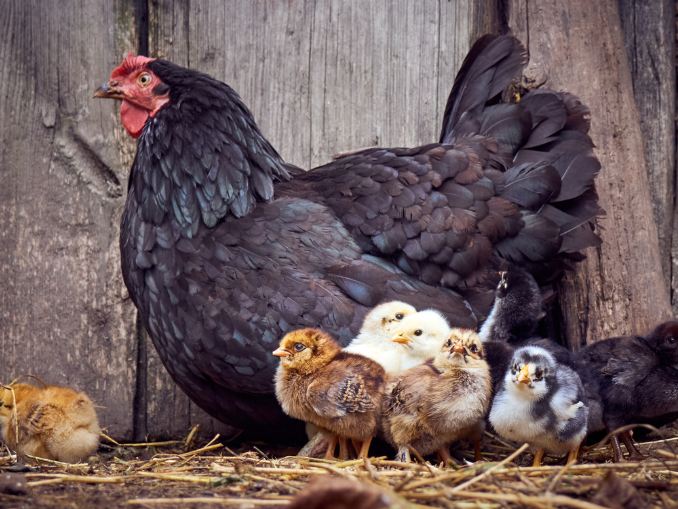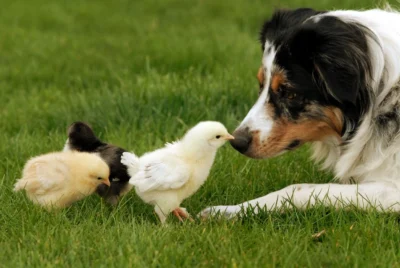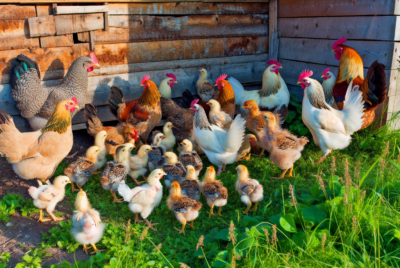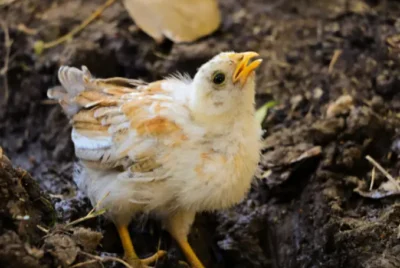Do Chickens Pee? A Comprehensive Guide to Poultry Biology
Chickens are fascinating birds, but their biology can be a bit puzzling. One common question people have is, do chickens pee?
In this easy-to-understand guide to poultry biology, we’ll break down the answer to this question and explore the basics of how chickens work.
Do Chickens Pee?
Chickens do not pee in the way mammals do. Instead of producing liquid urine, chickens, like other birds, excrete waste in a semi-solid form. This is because their waste matter, both fecal and urinary waste, is expelled through the same opening, the cloaca.
The urinary waste in chickens is processed into a white, pasty substance called uric acid. These uric acid crystals are mixed with feces and excreted in what we commonly see as bird droppings. This efficient waste removal system is part of what allows birds to be lightweight for flight.
So, chickens don’t pee in the typical sense; they combine their waste and excrete it differently.
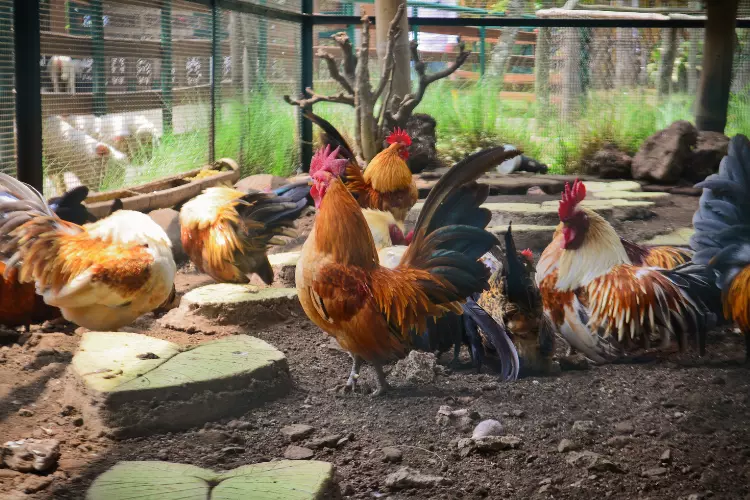
The Urinary System of Chickens
Similar to many bird species, chickens lack a urinary bladder. Instead, the chicken’s body possesses two elongated kidneys responsible for generating urinal waste.
These kidneys extract waste and toxins from the chicken’s bloodstream. Unlike mammals, which convert nitrogen to urea and store it in the bladder, chickens release non-water soluble uric acid through their kidneys.
The urates containing uric acid are directed to the cloaca through the ureter. Upon reaching the cloaca, the urine travels back to the large intestine, where the body reabsorbs the water content, resulting in a thick and pasty consistency.
Once the water is removed, the urine is mixed with digested food in the cloaca. During elimination, urine and feces are expelled together in a single drop, with the uric acid creating a white deposit atop the fecal matter.
Aside from excreting waste, chickens may release gas, a normal part of their digestive process. However, excessive or foul-smelling gas could indicate potential underlying health concerns.
How Often Do Chickens Pee and Poo?
As for the frequency of chicken excretion, it varies based on the size and diet of the chicken. Smaller chickens tend to excrete waste more frequently, roughly every 10 minutes, while average-sized chickens may do so every 20-25 minutes.
This high frequency of chicken droppings expulsion is an important consideration for chicken owners, particularly those who handle their chickens often, as it affects how they manage the cleanliness of the chickens’ environment and their interactions with them.
Does a Chicken Pee and Poop at the Same Time?
Chickens pee and poop at the same time. This happens because chickens, like other birds, have a unique anatomical feature called the cloaca. This organ is a single exit point for their digestive, urinary, and reproductive systems.
When a chicken excretes waste, it simultaneously expels feces and urinary waste. The urinary waste in chickens is not liquid urine but a white, pasty substance known as uric acid.
Do Chickens Pee in Their Nests during the Night?
Chickens typically do not urinate in their nests during the night. They have an instinct to keep their nesting areas clean. This instinct leads them to avoid soiling their nests, especially during the night when they are roosting.
Chickens usually roost on perches during the night and tend to hold their waste until morning. This behavior helps maintain the cleanliness and hygiene of their nesting areas, which is important for the health of the birds, especially for those that are laying eggs.
However, there can be exceptions, such as when a chicken is ill or if the roosting arrangements are inadequate, leading to occasional accidents.
Proper coop management, including providing adequate roosting space and regular cleaning, is essential to support this natural behavior and ensure the health and well-being of the chickens.
Read also: How To Train Your Chickens to Go Into the Chicken Coop at Night
Do Eggs and Chicken Poop Come from the Same Location?
In chickens, both eggs and chicken poop come from the same location, the cloaca. The cloaca is a single external opening that serves multiple functions in birds, including expulsing fecal matter and urinary waste (combined in birds) and laying eggs. However, the internal pathways for these processes are separate.
When a chicken lays an egg, their eggs pass through the oviduct and exit the body via the cloaca. The cloaca temporarily reconfigures itself to allow the egg to pass without waste contaminating it. The design of the bird’s reproductive and excretory systems ensures that when an egg is laid, the passage of chicken manure and urine is generally blocked, preventing contamination.
This efficient system allows chickens to expel waste and lay eggs through the same opening while keeping the eggs clean. It’s an example of the specialized adaptations birds have evolved for their specific life processes.
Read also: How to Use Chicken Manure Properly in the Garden

How to Avoid Urinary Issues in Chickens
It’s important to know if do chickens pee and poop, but it’s also crucial to prevent urinary issues. Chickens need to eliminate waste, or harmful toxins can build up and make them sick.
Here are ways to prevent urinary problems in chickens.
Feed Them The Right Food
Provide feed specifically made for chickens. Stick to high-quality chicken feed and occasional treats. Other livestock feed won’t have the right balance of vitamins and minerals.
No High Protein Food
Don’t give your flock high-protein food. Too much protein leads to excess uric acid, causing gout in chickens. Gout must be treated immediately, as it can be fatal.
Laying Pellets Are ONLY for Laying Hens
Avoid giving laying pellets to baby chicks. Laying pellets are for hens just starting to lay eggs. Chicks can’t handle the high calcium and protein in laying pellets, which can harm their kidneys.
Make Sure that they are Drinking Enough
Keep your chicks hydrated. Ensure they always have access to water. Chickens need water for their kidneys to work properly.
Clean Coop and Bedding
Maintain a clean and dry coop environment. Wet bedding can lead to bacterial growth, possibly contributing to urinary infections. Regularly remove wet and soiled bedding and replace it with fresh, dry material.
Provide Adequate Space
Ensure your chickens have enough space in their coop and run to prevent overcrowding. Overcrowding can lead to stress, affecting their overall health and making them more susceptible to urinary issues.
Good Ventilation
Proper ventilation in the coop is essential to reduce ammonia buildup from chicken droppings. Ammonia fumes can irritate your chickens’ respiratory system and potentially affect their urinary tract.
So, Do Chickens Pee?
While chickens may not “pee” like mammals do, they produce urine or liquid waste through urates. Understanding the intricacies of poultry biology, including waste elimination, is essential for responsible chicken keeping a clean and healthy environment for our feathered friends.
As we’ve discovered in this comprehensive guide to poultry biology, chickens are unique creatures with a fascinating array of biological adaptations. So, the next time someone asks, do chickens pee? You’ll be equipped with the knowledge to provide a thorough and accurate answer, shedding light on this intriguing aspect of our clucking companions.

